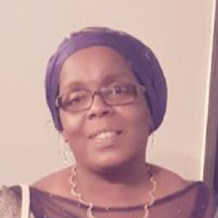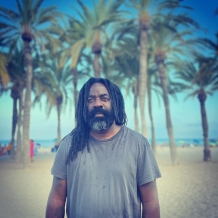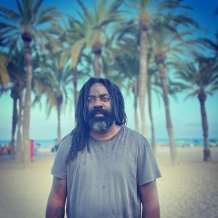Malcolm Richards is an independent doctoral research with the Graduate School of Education at the University of Exeter: https://eprofile.exeter.ac.uk/malcolmrichards/
 Camille London-Miyo is a PhD researcher with the Stephen Lawrence Research Centre De Montfort University, Leicester: https://www.dmu.ac.uk/research/centres-institutes/stephen-lawrence-research-centre/team.aspx
Camille London-Miyo is a PhD researcher with the Stephen Lawrence Research Centre De Montfort University, Leicester: https://www.dmu.ac.uk/research/centres-institutes/stephen-lawrence-research-centre/team.aspx
In the period following the murder of George Floyd (r.i.p) and the subsequent Movement for Black Lines protests across the United Kingdom between March and June 2020 (fire bun Colston), there has been renewed interest in the educational experiences of Black students, families, and educators. Here, Black (with ‘B’ capitalized) denotes peoples, cultures, knowledge, and communities of the African and African-Caribbean diaspora. Within this recent interest convergences, a variety of education institutions have sought to highlight their commitment to equality, diversity, inclusion, and anti-racist practices. Others have sought to ‘double down’ on their belief that institutional racism does not exist – or they can find no evidence to prove it. These are inevitably preoccupied with (small-c) conservative themes of migration, integration, and assimilation – though arguably grounded in (big-C) colonial and colonizing principles.
We maintain that the living experiences of Black educators have always offered a unique and central perspective in “exposing the tacit nature of racism and marginalisation in education” (Tembo, 2021). Decades before ‘Small Axe’ (McQueen, 2020) and ‘Uprising (McQueen, 2021), Black and anti-racist educators have drawn upon the legacy work of social movements which were instrumental to the educational advances made across our educational community. A long and extensive history of educational discourse across Black communities has directly informed these movements, which has centring perspectives and lived experience providing valuable insights about the roles of equity and race in education (Andrews and Palmer, 2016). Some seminal works, such as “How the West Indian Child is made Educationally Subnormal by the British Education System” (Coard, 1971/2021) are becoming important reference points for new generations of educators and referenced widely within the teaching education and development profession. Other books have had recent reissues, such as Beryl Gilroy’s “Black Teacher” (1976/2021) or Heart of the Race (Bryan et.al., 1985/ 2018), and place the importance of the vital contribution’s Black women centrally. There are so many other examples. We suggest that Black educators have long always formed part of a critical pedagogy, which is rooted in love, care and understanding for all. Yet within our respective universities, as we sought reading lists, academic events, and expertise to help us on our emerging academic endeavours, we found an absence of course content related to the experiences of Black educators. Instead, we were subjected to academic experiences which appeared, despite the best intentions of colleagues, rooted in deficit theorizing, or reduced into institutional pedagogical responses characterised as “the three S’s: saris, samosas, and steel bands” (Troyna, 1987). We had so many questions: how can emerging academics place centrally the counter-stories of Black educators who have directly influenced our academic works? Where can academics and educators engage with the significant research, teaching, resources, activism, community education and transformative practices which has emerged from Black educators and Black education spaces? What is this black in Black education, and who is this black in Black Educators?
Our response was small, but important. We created the Black Educators Book Club to encourage a intercultural, interdisciplinary space where colleagues can critically engage with such enquiries, while also centring, honouring, celebrating, and valuing some of the collective community praxis which we believe has emerged from it. The Black Educators Book Club is a virtual monthly lunchtime book club is open to staff, students, and professional service members at University of Exeter and De Montfort University, members, and affiliates of the Stephen Lawrence Research Centre (SLRC) and Race, Ethnicity and Education Network (REEN), as well as education staff in schools, colleges, academies, and other educational organisations. In the words of our friend, colleague and first BEBEC guest, Zahra Bei (2021), our hope is to honour the “legacy works” of knowledge production, praxis and peoples which recognise that Black educators have little alternative but to be transformative (Osler,1997) in their practices.
#BEBC2021 Readings:
- #1 – How the West Indian Child Is Made Educationally Subnormal by The British Education System by Bernard Coard (1971/2021)
- #2 – Spaces and Places of Black Educational Desire: Rethinking Black Supplementary Schools as a New Social Movement by Professor Heidi Mirza and Professor Diane Reay’ (2000)
- #3 – Black Male Teachers, White Education Spaces: Troubling School Practices of Othering and Surveillance by Dr Christine Callender (2019)
- #4 – Visible and Invisible Barriers: the impact of racism on BME teachers by Dr Zubaida Haque and Sian Elliott (2017)
- #5 – What is this Black in popular black culture? by Professor Stuart Hall (1993)
References:
Andrews, K. & Palmer, L. eds. (2016). Blackness in Britain, 1st edition, Routledge.
Bryan, B., Dadzie, S. & Scafe, S. (1985). The Heart of the Race: Black Women’s Lives in Britain. London: Virago.
Coard, B. (1971) Making Black Children Subnormal in Britain, Equity & Excellence in Education, 9:5, 49-52.
Coard, B. (1971). How the West Indian child is made educationally subnormal in the British school system: the scandal of the black child in schools in Britain. London, New Beacon for the Caribbean Education and Community Workers’ Association.
Gilroy, B. (1976) Black Teacher, Cassell, 1976. Reprinted Bogle-L’Ouverture, 1994
McQueen, S. (2020). ‘Small Axe”, BBC Television, Available from: https://www.bbc.co.uk/iplayer/episodes/p08vxt33/small-axe
McQueen, S. (2021). ‘Uprising’, BBC Television, Available from: https://www.bbc.co.uk/iplayer/episodes/m000y317/uprising
Osler, A. (1997). The education and careers of Black teachers: changing identies, changing lives, Open University Press, Buckingham, UK.
Tembo, S. (2021) ‘Black educators in (white) settings: Making racial identity visible in Early Childhood Education and Care in England, UK’, Journal of Early Childhood Research, 19(1), pp. 70–83.
Troyna, B. (1987) Beyond Multiculturalism: towards the enactment of anti‐racist education in policy, provision and pedagogy, Oxford Review of Education,13:3, 307-320.


